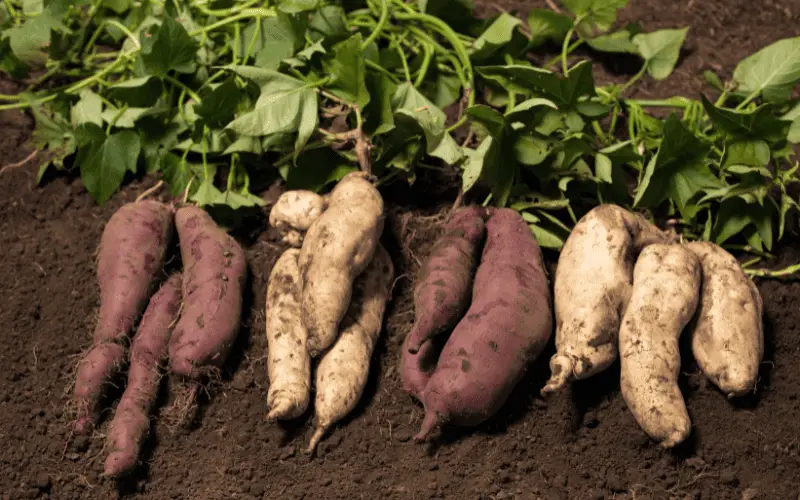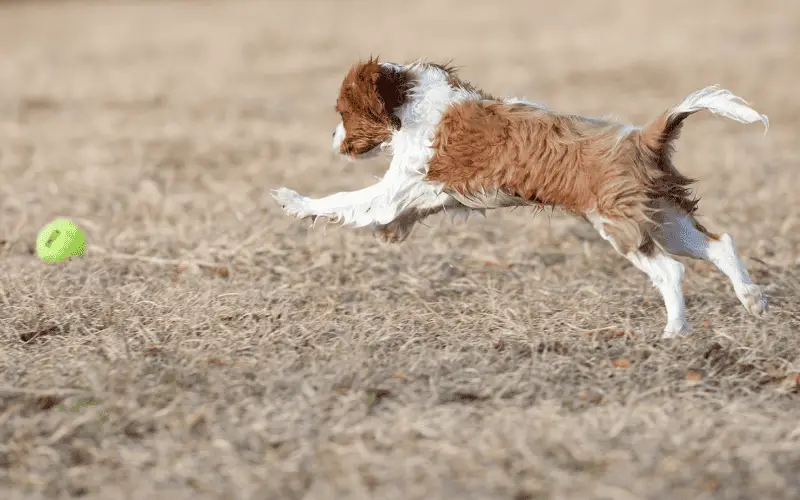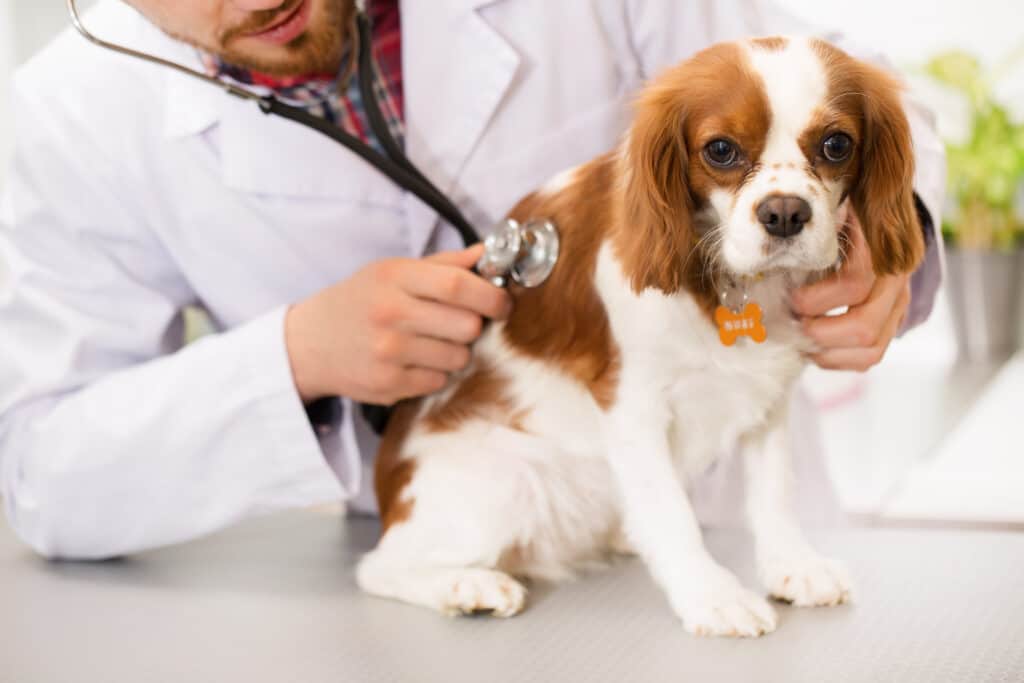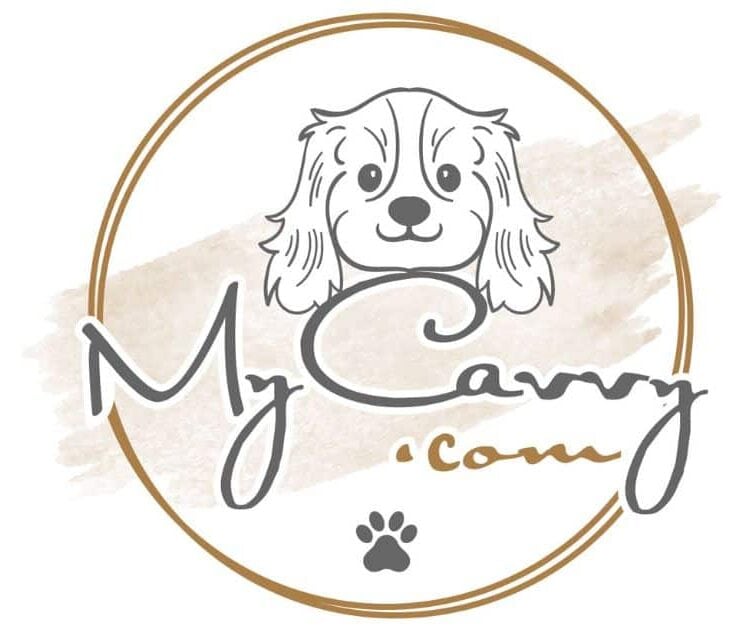When it comes to our furry friends, maintaining an optimal weight is paramount for their overall health and longevity, specifically for particular breeds like the King Charles Spaniel. However, just like their human counterparts, some dogs may have problems gaining weight.
Deficiencies in weight can result from a myriad of factors, from not getting enough nutrients or having poor appetite to underlying health issues.
So in this article, we want to delve into the nutritional needs of the breed, the significance of regular exercise, and the importance of regular consultation with a vet. Armed with this information you’ll be able to choose healthy ways to increase weight in King Charles Spaniels.
Understanding Nutritional Needs
Nutritional Essentials for Your King Charles Spaniel: A Home-Based Guide
Everyone loves a healthy and energetic pet, and when it comes to King Charles Spaniels, their nutrition plays a crucial role in their overall well-being. If you’re a proud Spaniel parent, understanding your pet’s nutritional needs is fundamental to maintaining their vitality, shiny coat, and cheerful disposition.
King Charles Spaniels are known for their lively personalities, affectionate nature, and playful charm. But every dog breed has unique needs, and the King Charles Spaniel is no exception. With specific nutritional demands, it’s important to know what food will ensure they have a balanced diet and stay in top dog condition.
First off, a suitable diet for a King Charles Spaniel should be nothing short of balanced and diverse. It should have an amalgamation of different food items that offer proteins, carbohydrates, vitamins, minerals, and fiber. The primary nutritional essential is protein, often derived from wholesome sources like fresh meat, fish, and poultry. Proteins are vital for brain development, muscle growth, and maintaining a healthy immune system.
Another needed component in their diet is good quality fat, like Omega-3 and Omega-6 fatty acids. These fats make food more appetizing for your furry friend and support skin and coat health, ensuring the gorgeous glossy shine that Spaniels are known for. Brown rice, sweet potatoes, and oats are excellent sources of carbohydrates and fiber that provide energy and aid in digestion.

Like us, dogs need a variety of vitamins and minerals to ensure overall health and well-being. Look for food with added vegetables for vitamins and minerals. Foods rich in Vitamin E, for instance, can protect the dog’s body from oxidative damage, while Vitamin D is essential for bone health.
It’s worth noting that some King Charles Spaniels are prone to certain health issues like obesity and heart conditions. In such cases, the pet’s diet should be carefully monitored and adjusted accordingly. It’s recommended to opt for low-sodium food options if the dog is diagnosed with a heart condition.
Portion control is also essential for a King Charles Spaniel. Overfeeding can lead to weight gain, which can cause more health problems down the line. Aim to feed your adult King Charles Spaniel two moderate-sized meals per day. Puppies should be fed according to the breeder or vet’s recommended schedule.
At the end of the day, remember that every King Charles Spaniel is unique, with their own likes, dislikes, and nutritional needs. While this article provides a guideline on feeding your Spaniel, always consult your vet or a pet nutritionist if you’re unsure about the best dietary choices for your specific pet.
Remember, a well-fed King Charles Spaniel is a happy and healthy Spaniel, ready to shower you with unconditional love and enjoyment. There’s nothing more rewarding than seeing your pet thriving, and knowing you’ve been providing the best nutritional care possible.
Introducing Regular Exercise
Exercise is just as important for your Cavvy’s health as diet is, especially when they’re trying to gain some weight. This goes beyond the aesthetics of having a pet dog with a nice physique, and into maintaining their overall health.
Contrary to what some may think, regular exercise doesn’t discourage weight gain but in fact, it promotes it. But how, might you ask?

Well, much like humans, when dogs exercise they build muscle. This muscle can then contribute to increased weight. So, if you’re looking for your Cavalier to put on some healthy weight, you’ll want to incorporate regular exercise to increase their muscle mass.
However, not all exercises are created equal – just as each dog is not the same. What works well for a hyper Border Collie may not be suitable for a more sedate Cavalier. Spaniels are a breed known for their heart issues so it’s imperative to consult with a vet before beginning any rigorous exercise regime.
As a rule of thumb, Cavaliers would usually benefit from a consistent daily routine consisting of a variety of low-impact exercises: think regular walks as opposed to strenuous hikes or runs. Let’s not forget playtime, too – this not only aids in physical exercise but also strengthens the bond between pet and owner.
Another tip to keep in mind is that exercise routines should be gradually introduced and increased. Starting slowly and gradually increasing the difficulty or resistance over time is the key to building muscle without causing overuse injuries.
To double the effectiveness of these exercises, consider incorporating high-protein treats as rewards during and after exercise. This will not only encourage your pet to engage more during physical activities but also aid in their muscle development.
Bear in mind, that regular hydration during exercise is crucial. Always ensure that your Cavvy has access to fresh water before, during, and after exercise.
As with any health-focused endeavor, maintaining constant communication with your vet is a must. They’ll be in a better position to guide your pet’s exercise routines, monitor their progress, and adjust where necessary – to ensure your beloved Spaniel stays in tip-top shape.
Above all, exercise for your Cavvy should be a continuation of their overall lifestyle, rather than a short-term solution for weight gain. Regular physical activity coupled with a well-rounded, balanced diet is vital for their long-term health and happiness.
Remember, a healthier Cavalier means more years of tail-wagging fun for the whole family! So, bundle up (or slather on that SPF), grab their favorite leash, and head out for some heart-healthy hound exercise!
Consultation with a Veterinarian
A vital ally in ensuring your beloved Cavvy healthily gains weight is a qualified veterinarian. They provide guidance, monitoring, and advice on how to proceed, aiding you in navigating the world of canine well-being. Here’s how a vet can support you in this process.

First and foremost, a vet can diagnose underlying health issues that might be hindering weight gain. Underweight dogs may be affected by parasites, dental problems, liver disease, and other health conditions that aren’t always perceptible to the untrained eye. A check-up is a good starting point.
Furthermore, a vet has the expertise to recommend food specifically designed for weight gain. Despite the welcoming appearance of many over-the-counter products, not all pet foods are created equal. Some may claim to be ‘high-energy’ or ‘calorie-dense,’ but they fill up with unhealthy calories. A vet can differentiate and guide you toward options that are nutritionally balanced and wholesome.
As a well-informed parent of Cavaliers, you know that certain breeds require specific nutrients. Over and above the basics we’ve already discussed, your vet can reveal other breed-specific nutritional requirements that can support healthy weight gain. For instance, a vet might prescribe specialized supplements or recommend tweaking the portions of certain food groups.
In addition to vet-approved food and possible supplementation, your vet can monitor progress and adjust the plan as necessary. Regular check-ups allowing the vet to assess the Spaniel’s weight gain and general health are incredibly beneficial. They will alter the diet or supplement regime as necessary, ensuring a steady, healthy increase in weight.
And let’s not forget the importance of understanding a Spaniel’s individual needs, characteristics, and unique quirks. A seasoned vet, perhaps one who knows your furry friend well, can align a weight-gain strategy to your dog’s natural propensities and preferences, promoting better adherence to the plan.
Lastly, the vet can provide educational resources or even training to assist you, as the owner, better comprehend how to aid in your dog’s weight gain journey. This can involve instructions on how to read pet food labels, which human foods are healthy for dogs, and how to measure and monitor your Spaniel’s weight at home.
Collaborating with a vet can be a pivotal choice in your dog’s weight-gain process, providing expertise, devotion, and a nurturing hand that will undoubtedly lead to a healthier, happier Spaniel. Because in the end, a healthy pet means a happy family. And that’s something we can all get behind.
As a responsible dog owner, it is essential to strike the right balance while ensuring that your King Charles Spaniel is getting adequate nutrition, regular exercise, and routine vet check-ups.
An understanding of your dog’s nutritional needs and the role of activity in healthy weight gain is vital.
However, even more critical is the necessity of regular vet consultations to rule out any potential health issues and to get personal diet and exercise recommendations. Remember, every dog is unique, and what works for one may not work for another. Hence, individual care and attention in accordance with professional advice can genuinely make a difference for your Cavvy’s weight and overall health.

